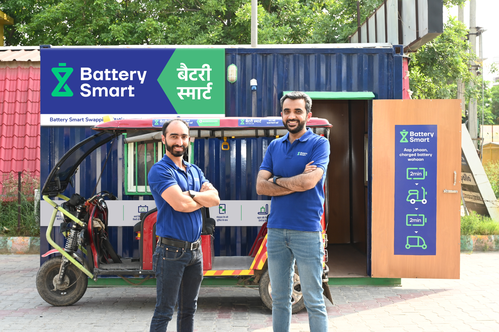New Delhi, 5 May (IANS). The net deficit of Gurugram based EV startup ‘Battery Smart’ has reached Rs 140 crore in FY 2024, which is more than double the loss of Rs 61 crore recorded in the last financial year.
Despite the three -fold increase in operating revenue, rising costs huge impact on the company’s profits.
The operation of ‘Battery Smart’ increased by 193 percent to Rs 164 crore in Revenue FY 2024, Rs 56 crore in FY 2023, which is completely operated by the Battery-e-Saravis for its main business-electric vehicle manufacturers.
The financial status of the company reported by the entrakor shows that the total income of the company, including income of Rs 23 crore from interest on financial assets, was Rs 187 crore for the year.
However, the total expenditure of the company was doubled from Rs 125 crore to Rs 327 crore from a year ago.
According to the data, a large part of it increased by about 3.8 times the depreciation fee from Rs 85 crore and Rs 3.75 times in the finance cost to Rs 45 crore.
Employee benefit expansion also increased rapidly to Rs 41 crore, while advertising expenditure declined by 60 percent to Rs 8 crore.
The increasing deficit of ‘Battery Smart’ reflect the challenges in cost efficiency.
Its returns were on Capital Employees (ROCE) 18.34 percent, and its income before EBITDA margin was -5.35 percent.
For every 1 rupee of operating revenue, the company spent Rs 1.99, which shows pressure on the margin despite increasing demand.
Battery Smart reported the current assets of Rs 328 crore by March 2024, including Rs 107 crore cash and bank balance, which provide some financial buffer.
Supported by investors such as Tiger Global and Bloom Ventures, Battery Smart has so far raised around $ 192 million.
Both the company’s co-founder, Pulkit Khurana and Siddharth Sikka have a total equity of 28.5 percent.
Several reports states that its focus on two -wheelers and three -wheelers leads it, especially in the three -wheeler segment where battery swapping is proving to be more efficient than traditional charging.
“Nevertheless, the company is facing risk from big vehicle manufacturers, who may prefer ownership batteries or create their own networks.”
-IANS
SKT/ABM










